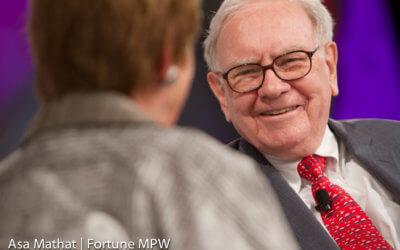Investing
What I Learnt From Adam Smith About Investment and Money
Chris Susanto
18 July 2020
Who is Adam Smith?
Adam Smith (1723-1790) was a philosopher and economist who was best known for authoring the book An Inquiry into the Nature and Causes of the Wealth of Nations. Wealth of Nations also happens to be one of Warren Buffett’s favourite books.
See also: Our free investing telegram channel. We post daily.
What I Learnt From Adam Smith About Investment and Money
1. Professional investors are deemed to be smarter because they can churn out ratios at the touch of a button compared to the small investor. They are in fact, not smarter, they merely have more information
It is true that the pros have more resources at hand to subscribe to Bloomberg Terminal for example which cost a bomb. And they are deemed to be smarter.
But the truth is having more resources and information may not always result in better investment performance. Because investment performance is also a lot about managing our emotions.
2. To be a good investor, you have to be a good brain picker and brain pickers are usually good for a dinner conversation
Hence the saying too, it is not just what you know, but who you know.
This does not mean that we should ask for stock tips.
I think that what Adam might be saying here is that we should leverage on people’s views on some stocks he or she might be looking at.
It is ultimately left to our judgment, analysis, and valuation on whether the stock is worth investing or not.
3. The safest way to preserve capital is to double it
I believe in this insight of him. It is indeed the safest way because if we manage to double our money, we can withstand more draw-down and still preserve our capital.
4. The stock does not know that you own it
This is one of my favorite ones. Recently I talked to a friend, an ex MD of UBS. Even a man of his experience would agree with me that people (including myself) anchor the stock to the price we bought it at. But hey, the stock does not even know that we own it. And at what price. But humans are often very emotional about stocks and anchor them to the price we bought it at.
In the end, what matters is the value of the business, not the daily stock price movement. So in a sense, the price is meaningless, our value of it – and whether we are right or wrong is.
5. 80% of the market game is psychology
I agree. That is why I named my blog re-thinkwealth. It is to remind us to rethink our assumptions and logic. And to remind me as well that ultimately the name of the game is having good emotional control as well as a rational mind.
6. If you do not know who you are, the market is a terribly expensive place to find out
I agree. The stock market often rattles people because [1] they follow people blindly and do not understand what they are doing [2] they forgot that investing in the stock market is a combination of good emotional control as well as having a rational mind.
Disclaimer:
The information provided is for general information purposes only and is not intended to be a personalized investment or financial advice.
Important: Please read our full disclaimer.

Chris Lee Susanto
Founder of the value investing blog Re-ThinkWealth.com (if you type “value investing blog” in Google, his blog is likely the first one). Being a full-time investor himself, Chris knows that he did not beat the S&P 500 return so far (as of the time of this writing) by listening to stock tips. So, when he teaches, he also doesn’t believe in giving stock tips as it is not sustainable for you in the long run. He will teach you how to make your own intelligent decisions with his 4M1S framework. Feel free to also join his free investment telegram channel here.
Read also now:
The Three US Stocks That Big Funds Are Buying: Booking, Alphabet & Microsoft
The three US stocks that the big fund managers are buying includes Booking Holdings Inc, Alphabet Inc and Microsoft Corp.
Rebranding of VIM logo to communicate our Values better
VIM/Value Investing Mentorship is an investment education […]
Here’s The Value Investing Strategy Warren Buffett Uses In Bear Market
In this article, I will be sharing the value investing strategy and philoso […]
STI ETF: Historical Returns, Dividends, Investment Prospects in 2022
STI ETF or Straits Times Index is the index of the top 30 companies listed in […]
GoTo IPO: Will I Invest in The New Company of Gojek and Tokopedia?
GoTo IPO date is on 11 April 2022. Analyzing their prospectus, will I invest in […]
Russia-Ukraine War: How to Keep a Level Head And Invest Long Term
In this article, I will be sharing my opinion on how to keep a level head and invest […]
I Recently Got Covid. Here’s How It Affected My Investment Outlook
In this article, I will be sharing my journey on recently having acquired COVID-19 and […]
22.70% vs 15.19%; My Performance vs S&P 500 for Close to 7 Years
In this article, I am going to try to condense what I have reflected on, learned, and applied through […]
3Q 2021 Update to My Carnival Corp Stock Thesis
In June 2021, I wrote that I think Carnival Corp stock is likely going to sail higher in 2021. It took a […]
What is Sustainable Stock Investing and Does It Work?
What is Sustainable Stock Investing? ESG/ sustainable investing is a form of investing that is generally […]
Top 10 Warren Buffett Quotes on Investing | Re-ThinkWealth.com
Is FB a social media company? An advertising company? Or a chat company? Or a VR company? Online […]
Quick Analysis on FB Stock by Re-ThinkWealth.com (August 2021)
Is FB a social media company? An advertising company? Or a chat company? Or a VR company? Online […]
Growth or Value Investing? Why Not Both? – Re-ThinkWealth.com
Both value and growth investing have the same goal: which is to find the biggest opportunity or a gap or […]
Will Carnival Corp Stock Sail Higher in 2021? (June 2021)
“Carnival” based on the Oxford dictionary can also be defined as “a traveling funfair or circus.” The name is apt for a […]
Here Are My Quick Analysis on Palantir Technologies Stock (June 2021)
Palantir is a company that provides large organizations with a minimum of $500 million in revenue the ability to […]
High dividend yield, blue-chip stocks, is it safer? | Re-ThinkWealth.com
Many investors love to invest based on dividend yield alone. They think that dividend stocks are safe, but are all of […]
The Best Investors And Money Managers of All Time [Ultimate List]
The purpose of this article is to compile a list of some of the worlds greatest investors and money managers. We will also […]
How to Invest Like Chamath Palihapitiya
Who is Chamath Palihapitiya? Chamath is a former Facebook executive who became a venture investor. How to invest like Chamath […]
8 Practical Way For Stock Investors To Be Emotionally Intelligent
Scientists have discovered that emotions are generally caused by our own thoughts. That means that two people in the same situation […]
Here Are The Daily Routine That Has Helped Me As A Stock Investor
For stock investors, I am a firm believer in having an optimized routine that supports us emotionally and rationally – so we can hopefully […]
Here’s My Investment Outlook for 2021 (Is It A Year of Recovery?)
2020 has been another great year for my portfolio. My portfolio is up around 81.24% for the year compared to the S&P 500 total […]

















![The Best Investors And Money Managers of All Time [Ultimate List]](https://www.re-thinkwealth.com/wp-content/uploads/2021/05/warren-buffett-400x250.jpg)


